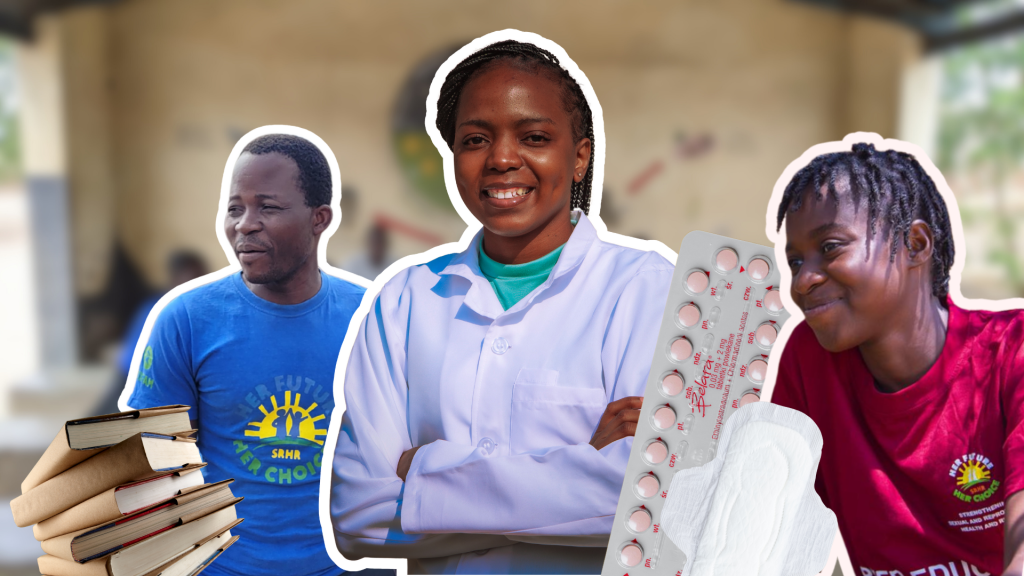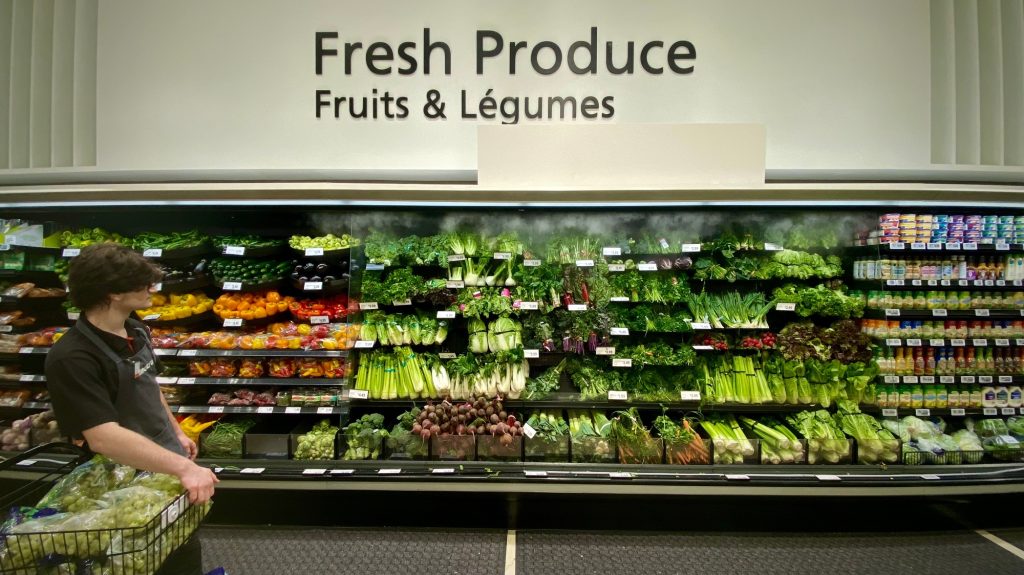Innovation meets expertise: Oxfam’s clean water projects around the world
Over the past half century, Oxfam has forged the way in water and sanitation provision. Our water engineers are renowned for their speed and efficiency, providing large-scale water supplies and disease-preventing sanitation facilities to millions of vulnerable people around the world – even in the most challenging environments.
Working alongside local partners, we are committed to developing innovative, long-term and cost-effective solutions that are tailored to each community’s unique needs and can reduce levels of poverty and disease.
Clean water is not just a luxury to some, it’s a seeming impossibility. Providing clean water and access to sanitation where they’re most needed is an essential part of our humanitarian work. And it all starts with constantly searching for new, ground-breaking ideas that work well now and stand the test of time.
Gaza Water Project
The humanitarian context in Gaza after more than four months of conflict is beyond catastrophic. Gaza’s water and sanitation systems are shattered. With sanitary conditions severely deteriorating, there is a major risk of widespread outbreaks of diseases. Oxfam and Palestinian Environment Friends (PEF) are addressing the lack of water and sanitation systems in Gaza by installing wells and water treatment units to make the salty ground water in Gaza drinkable for families. We will also install water storage bladders and transport water by truck along with foldable water storage containers. The plans include building and installing 200 toilets, 128 handwashing stations, and 67 showers, complete with lighting, door-locking systems, and grab rails to provide security and support for persons with additional needs. This massive water and sanitation project will serve more than 27,000 people across Rafah and Khan Younes.
Desalination through reverse osmosis is a technology that Oxfam engineers have been pioneering in Iraq, Kenya, Somaliland, Syria, and Yemen. The plants will be powered by solar energy, which makes for a sustainable and reliable solution in challenging contexts where a regular and uninterrupted fuel supply can often not be guaranteed.
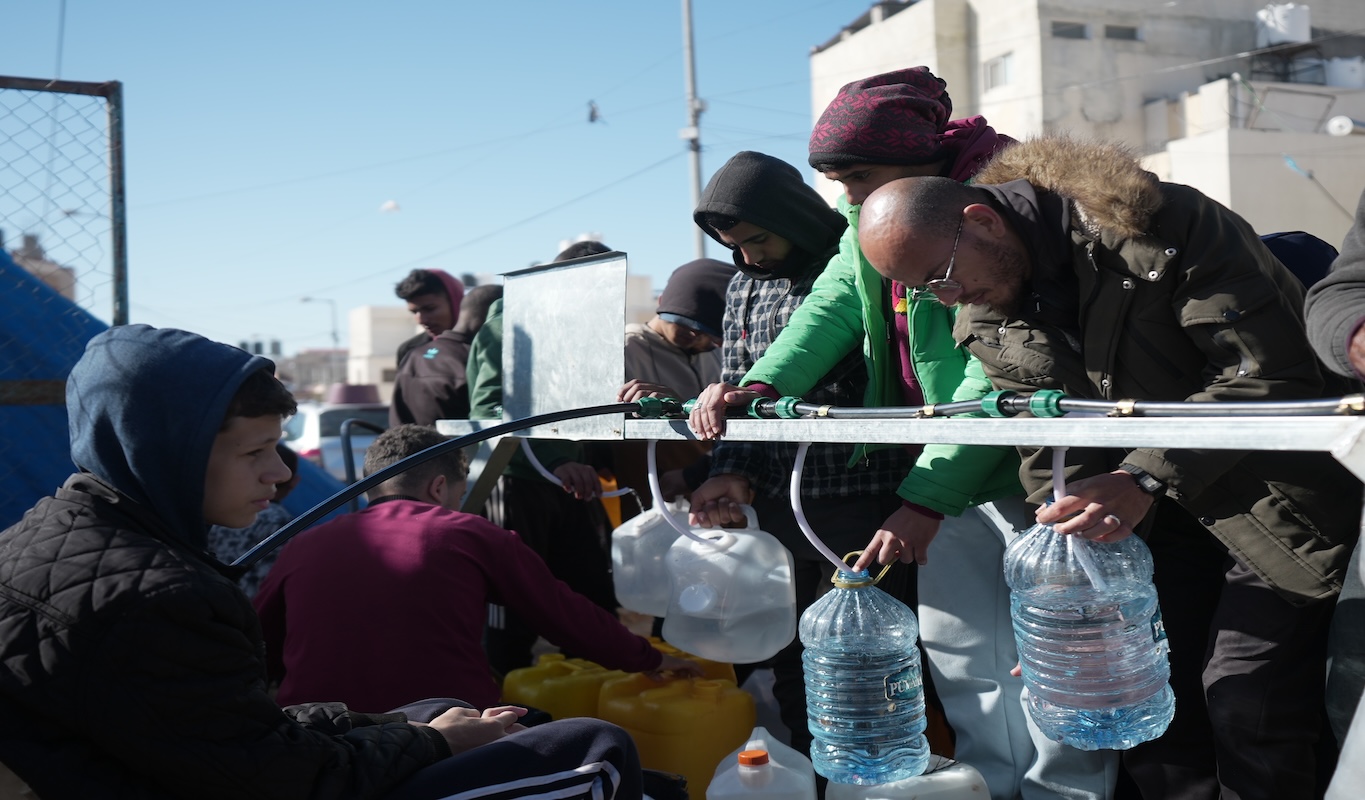
LifeSaver Cubes in Mozambique
Fast action can stop an emergency from turning into a crisis. One month after Cyclone Idai devastated Southern Africa, Oxfam and its local partner organizations in Mozambique were still finding thousands of isolated people cut off from any aid or rescue. Almost all water sources were contaminated, and the majority of latrines had been smashed.
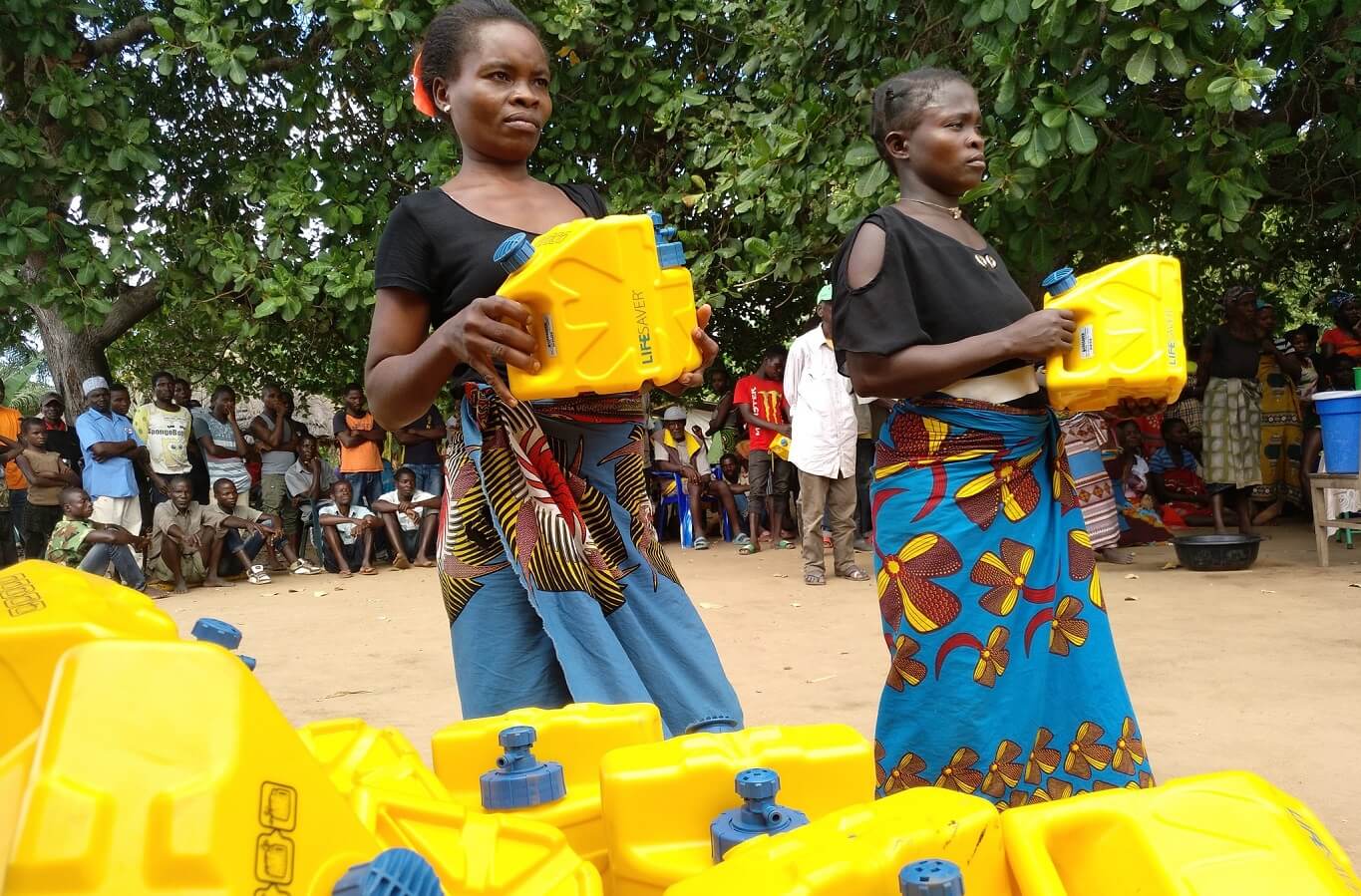
In the face of cholera outbreaks in other parts of Mozambique, we knew we had to act fast to get clean water to the community. Given the difficult terrain, it would be impossible to truck water straight there.
That’s where the life-saver cube comes in. This hand-held pump can turn the dirtiest of water into clean, safe drinking water through an inbuilt hand pump. It is lightweight and perfect for transporting to areas that are hard to reach. The teams got the life-saver cubes to the community by car, canoe and on the backs of motorbikes.
Water Filters in Indonesia
In every disaster, water and sanitation are among the most urgent needs. After a massive earthquake and then a tsunami hit Central Sulawesi, Indonesia, in September 2018, the water supply infrastructure and pipes were critically damaged. The city of Palu became dependent on a fleet of water trucks that were under huge strain to meet demand.
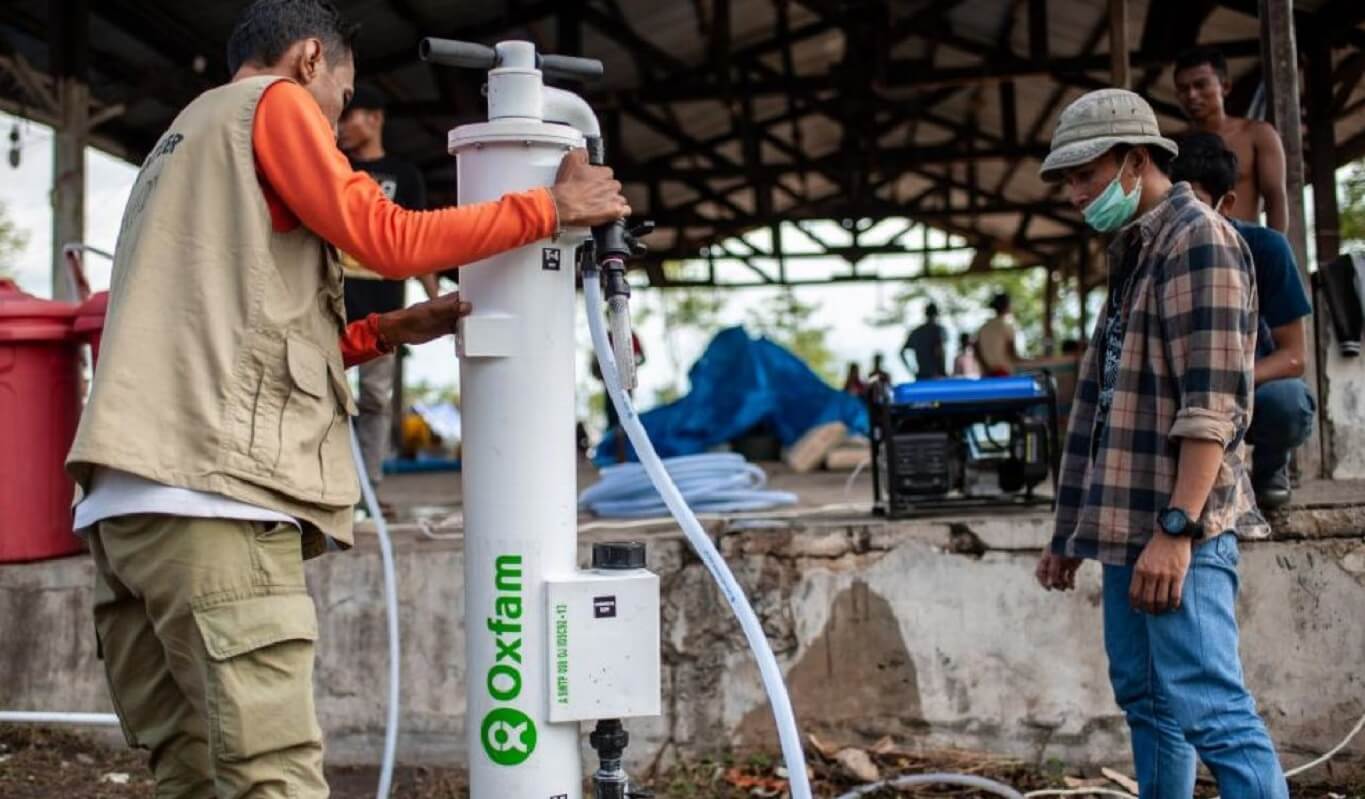
The fastest and most efficient way to provide clean water is through water purification. Oxfam’s water, sanitation and hygiene (WASH) team brought in water treatment equipment called the SkyHydrant, that converts ground water into safe drinking water without the need for power or chemicals. It can produce 1,200 litres of clean water per hour from a bore hole – enough for around 500 people per day.
Desalination Units in Somalia and Yemen
As in the entire Horn of Africa area, droughts are becoming more recurrent and more severe in Somalia due to climate change. The people of Somalia, mostly pastoralist and nomadic, has lost much of their livestock and with it, their livelihoods.
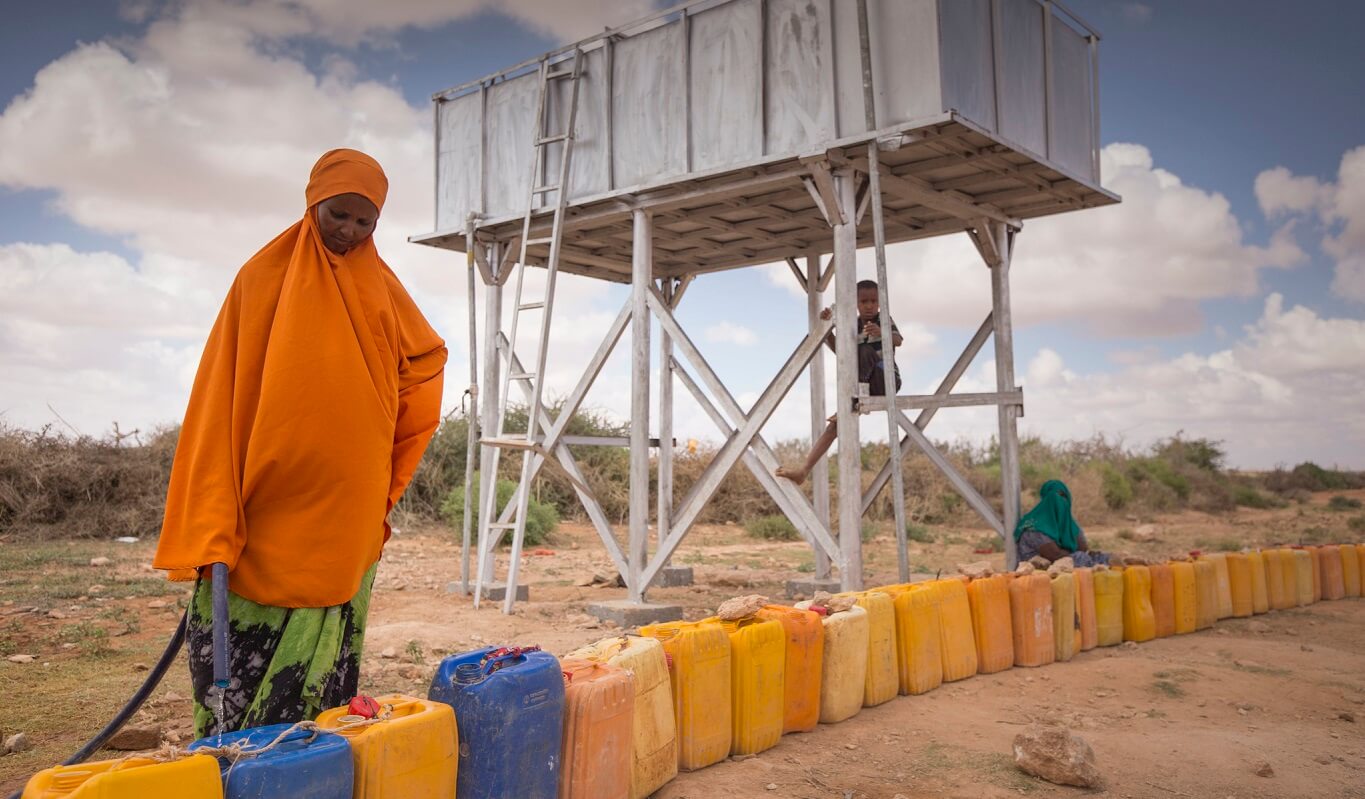
Oxfam aims to strengthen the recovery capacities of communities against the impacts of limited access to safe water. That includes providing innovative and sustainable solutions, such as the installation of water desalination systems that are activated with solar energy.
Brackish (high saline) water is an increasingly common problem. In some communities, underground sources contain salt and sandy water. The desalination plant filters this contaminated water and converts it into fresh drinking water for local communities, as well as people fleeing the drought.
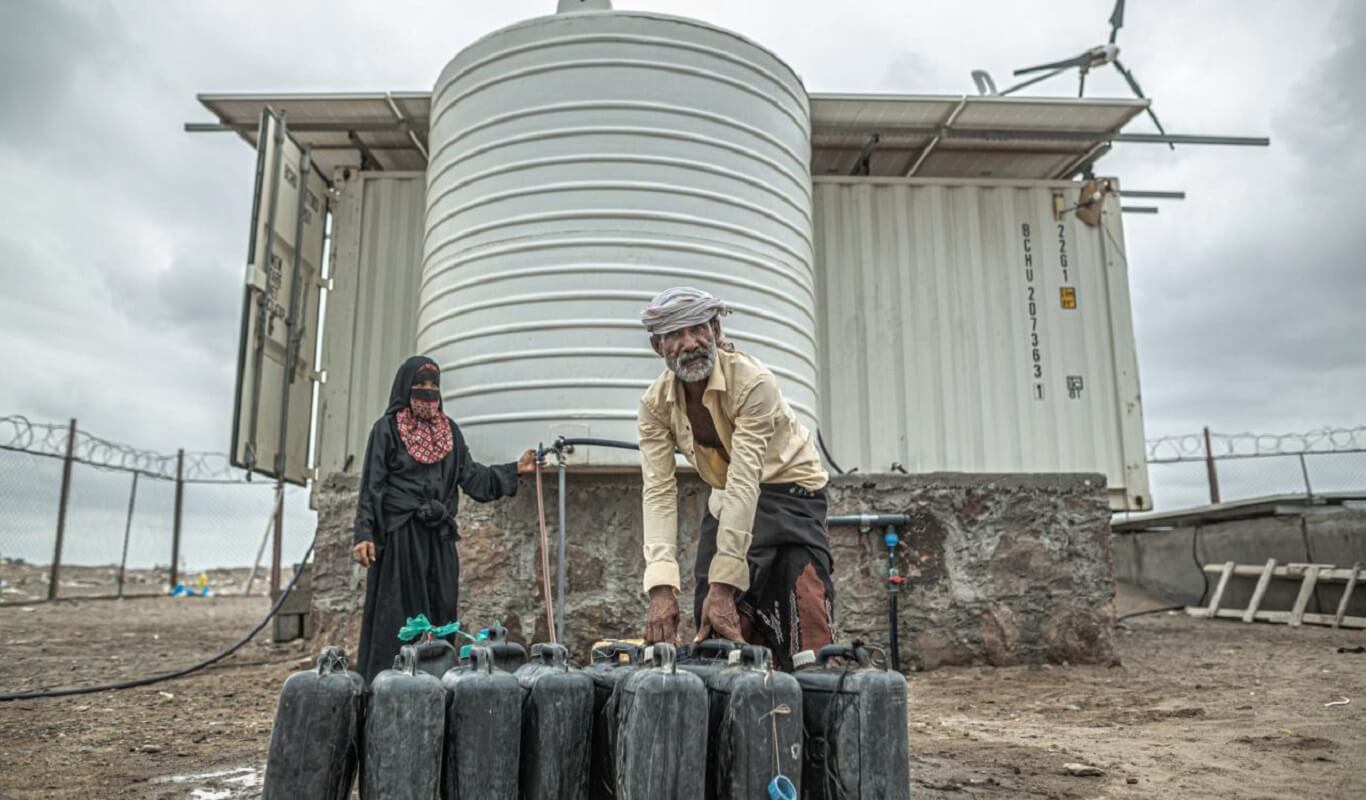
Khor Omeira region, in Lahj Governorate, is an arid area about two hours from Aden, on the west coast of Yemen. Most of its inhabitants make a living from fishing. There are no basic services. People struggle to have enough water for their basic needs. They usually take it directly from the sea or from deep wells that yield only saltwater. Most families can’t afford to buy water because the price has doubled due to the conflict.
In Ras Al Ara and Al Mudaraba settlements, Oxfam built a desalination unit that runs on solar panels and wind power. With this innovative project, families have clean water at a 50 per cent lower price than what they would have paid merchants, which they can then use for drinking and cooking.
The Longest-Ever Water Pipeline in Democratic Republic of Congo
The Fizi territory in the South Kivu region of DRC is one of the most inaccessible places. As the population has grown so has the demand for water, putting pressure on the limited water infrastructure in the area. Most of the water sources and wells have been damaged during armed conflicts. Families are forced to consume unsafe water from stagnant sources, which puts them at risk of contracting deadly water-borne diseases, such as cholera.
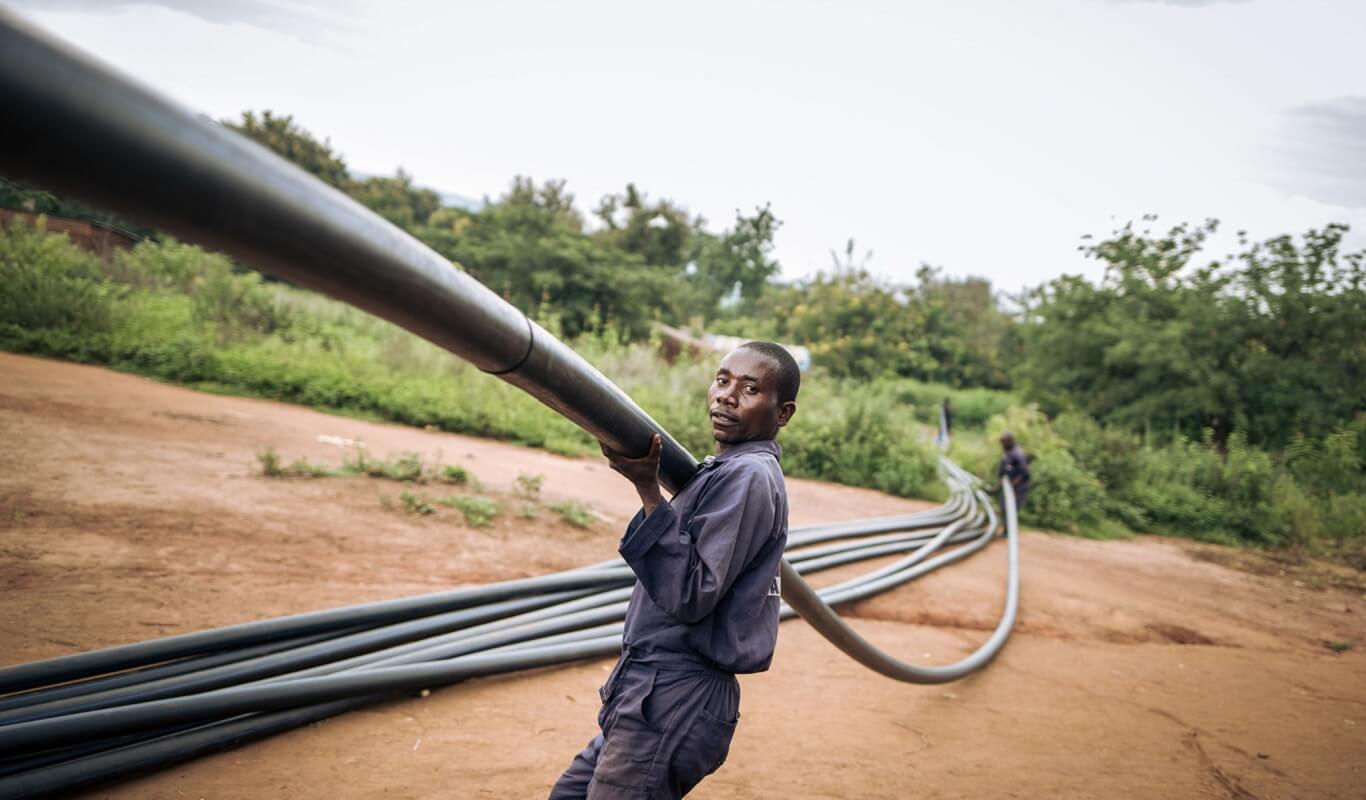
Oxfam started the construction of a more than 100-kilometer-long gravity-fed water supply system, which taps into a river source in the Mitumba mountain ranges. As far as we know, this pipeline is one of the longest ever to be installed by an NGO. Once completed, this pipeline will provide safe water to more than 80,000 people in all of the main surrounding towns.
Solar Water Treatment Plants in South Sudan
In South Sudan, one out of every two people don’t have access to clean water. Many use river water for cooking and drinking, which carries with it the risk of water-borne diseases like typhoid and cholera. Oxfam has built a new solar-powered water treatment plant in the Gumbo area of Juba that helps to meet the need for clean water.
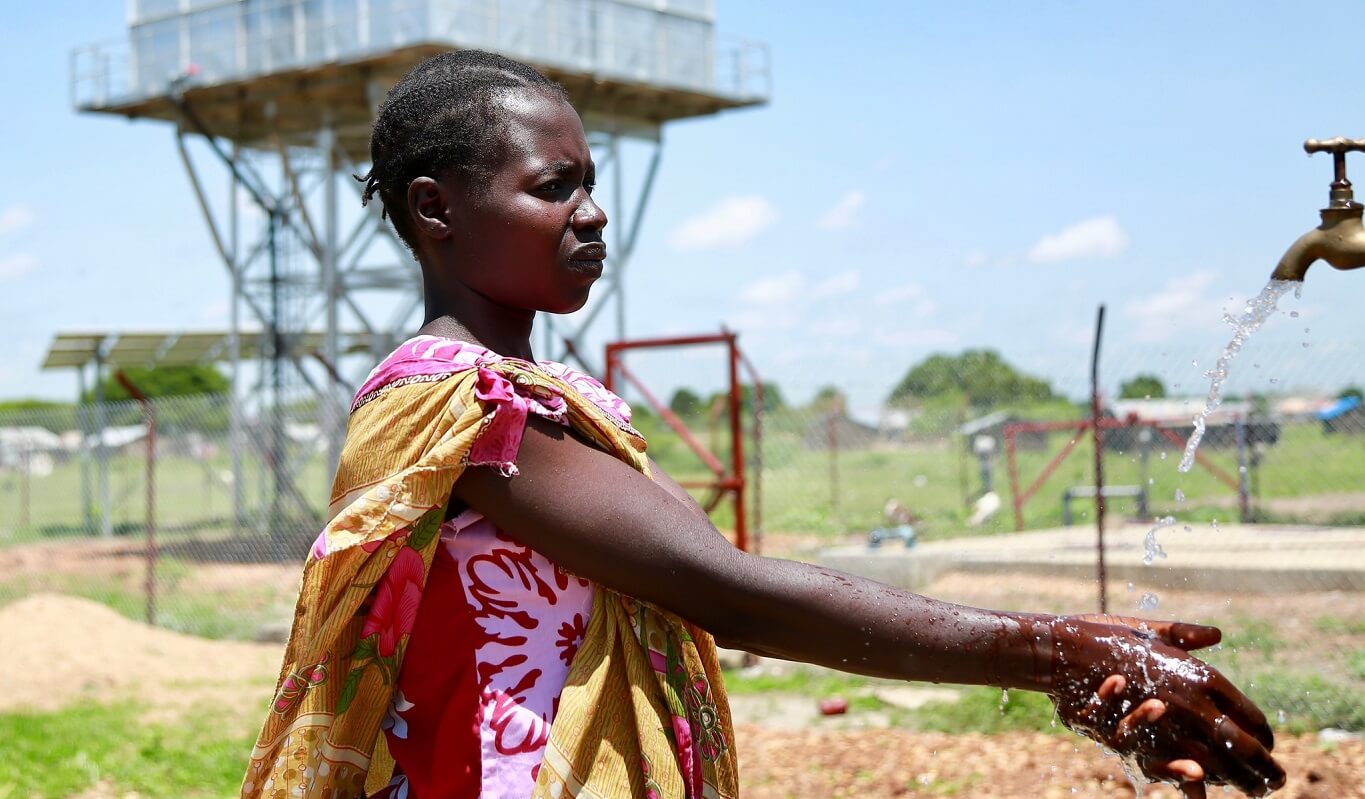
The plant produces a minimum of 300 m3 per day and serves an estimated 15,000 people with clean, safe drinking water. It was designed to be easy to operate and require minimal maintenance. It doesn’t depend on fuel, which is expensive and in short supply in South Sudan. There is a complete distribution network, including three water kiosks and a water truck filling station. Oxfam is training community members to look after and maintain the plant and its water supply.
Gravity Water Supply System and Alternative Management Model in Nepal
In Nepal, the 2015 earthquake damaged many water sources in rural villages located in the mountains, like in Dhading district. The earthquake caused the underground water supply to migrate, which meant that existing water sources completely dried up. People were forced to leave their homes due to the lack of water.
In addition to restoring the community’s water supply after the earthquake, Oxfam and our partner, Grundfos Foundation, took on a longer-term project to address water supply management in the district. In Nepal, 71% of water schemes encounter challenges due to lack of management and repairs. The Alternative Management Model (AMM) – Water Supply Model is a board model where all the water supply schemes are clustered into one bundle and managed by one board. Whereas in many cases, water management had previously been done on a voluntary basis by community members, the AMM Water Supply Model put a professional board in place to ensure quality services for the community that ensure a sustainable supply of clean, accessible water. In December 2023, the Nepal Minister for Water Supply and Sanitation Mahendra Ray Yadav publicly acclaimed Oxfam's work on the Board Model as a replicable model throughout the country.
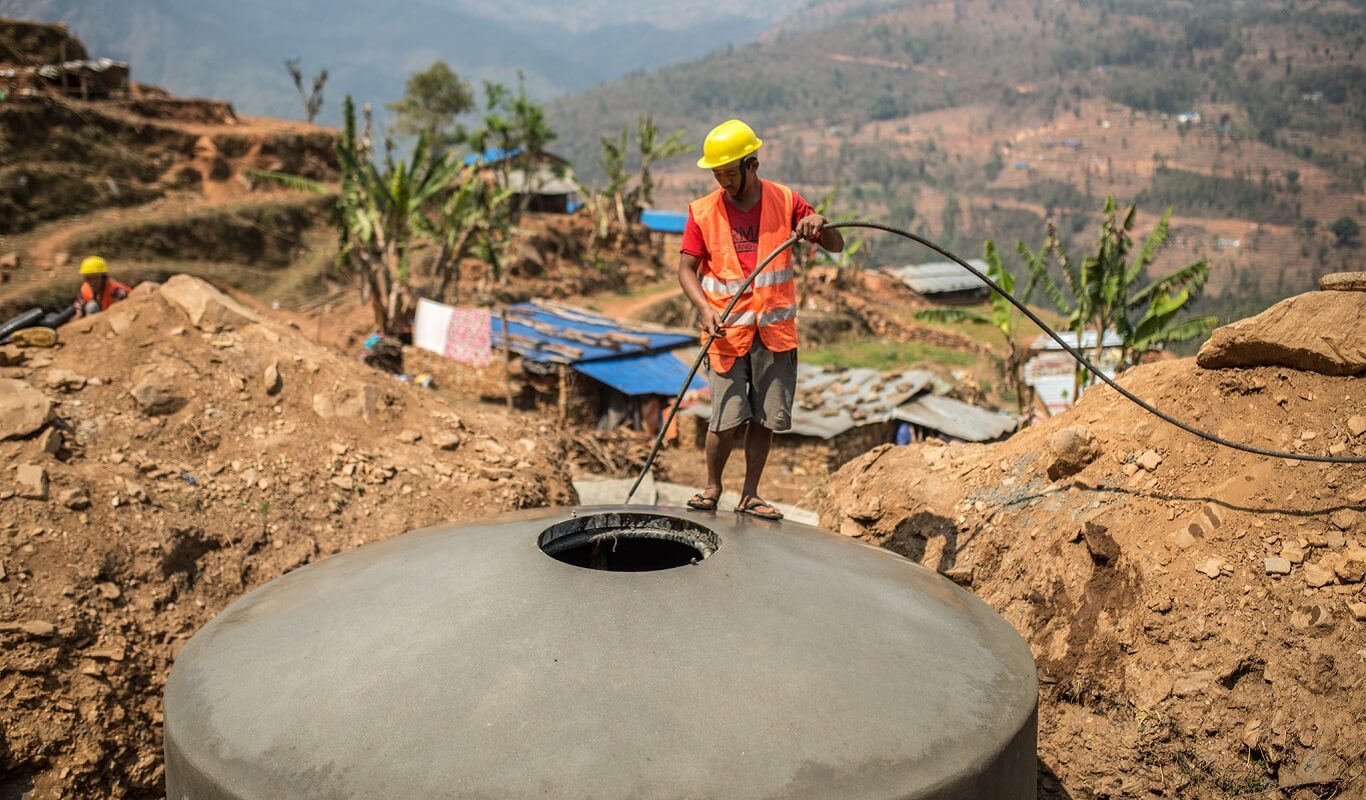
To bring water back to the community and make it even more accessible than before, Oxfam built a gravity water supply system to support 266 households (1,500 people), as well as three schools. Taps are connected to their homes and women no longer have to go and collect water as they did before the earthquake.
Beating Poverty with Water for All
Oxfam has a vision of a world where everyone has safe, clean water to drink. A world where every single person has access to soap and decent sanitation. A world where no one's life is threatened by deadly waterborne diseases.
Pioneering ideas like these have the power to change countless lives for the better. With your support, we will continue to innovate to achieve a just world without poverty.
